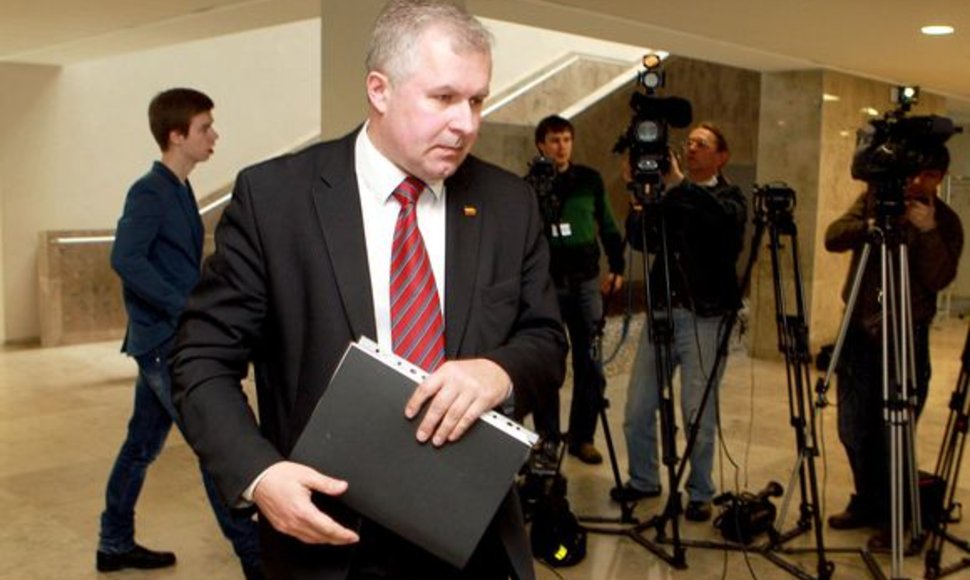Earlier this week, Russia's Ministry of Finance announced a plan on the 2013 budget expenses for separate areas, based on which defense spending would be increased by 25 percent, as compared to this year.
"I would like to pay attention to the fact that such increases have been taking place every year for the last decade. The military budget has been growing by 20-30 percent every year. Naturally, when the military budget is growing at this pace, the question always arises what such funds are needed for. In this case it, no doubt, involves re-armament of the forces, and all of that we see in Kaliningrad region," Arvydas Anušauskas, chairman of the Seimas Committee on National Security and Defense, told BNS.
"On the other hand, I cannot help mentioning one relative difference. When Lithuania plans its defense spending, it's five times lower than that of Russia per capita. It’s not hard to calculate. Let's imagine that Lithuania takes LTL 3.5 billion (over EUR 1 billion) out of its social and healthcare budget and other programs. So it would have an enormous effect on people's wellbeing. We can only sympathize with Russia's people as the continuity of alleged imperialist traditions in one area has a more painful effect on them," he said.
According to Anušauskas, if Russia continues increasing its military spending and arming its military forces, then in a decade a well-funded military group having modern weaponry will emerge in Lithuania's neighborhood.
"Lithuania, of course, cannot respond adequately as we don’t have billions. But a certain increase of military spending has to be foreseen so that we could get back to the pre-crisis level of defense spending. It’s really important for our national security," Anušauskas told BNS.
He also paid attention to the fact that Russia's increasing military budget was becoming less transparent.
"Previously they would classify a third. And now they classify around one half of all information on military spending. The dropping level of transparency shows that the authorities are acting as they like. Russia's parliament has less and less power to control the use of funds and that might lead to oligarchic schemes," the Seimas committee said.
Based on data from the Russian finance ministry, the country plans to increase military spending, but social spending would be cut.
"It’s, of course, Russia's internal matter, but I think every citizen of that country giving part of his income to the country's social security sphere could think what he loses and what he gets back," Anušauskas said.
Juozas Olekas, member of the Seimas Committee on National Security and Defense and the opposition Social Democratic Party, comments to BNS that the fact that Russia, with its numerous problems in the social sphere, chooses to spend money on weapons is worrying.
"Russia's growing military budget, in my opinion, is causing concern to neighboring countries that they have decided to fund defense amid many social problems. On the other hand, their motives for increasing defense funding – they allegedly feel threatened by NATO – do not match the reality. The missile defense NATO is building is not directed against Russia but against threats from less predictable countries. It has already been clearly said to Russia, but the new president (Vladimir Putin – BNS) has such ambitions, so that's their decision," Olekas said.
Asked whether he saw any threat to Lithuania from Russia's growing military spending, Olekas said that at this moment Lithuania "is safe being a NATO member as never before."
"We, as an individual country, do not have such financial resources as compared to Russia's capabilities. Bur we are a member of the Alliance and by making our modest contribution to collective security we are ensuring the highest level of security across the Alliance," the social democratic MP said.
Lithuanian President Dalia Grybauskaitė has warned NATO partners over the militarization of Russia's Kaliningrad region at the NATO Chicago summit in May.
The Committees on Foreign Affairs of the Baltic parliaments said at a meeting in the resort town of Nida, western Lithuania, in June that statements by representatives of the Russian authorities on growing military capabilities were increasingly causing concern for neighboring countries.












